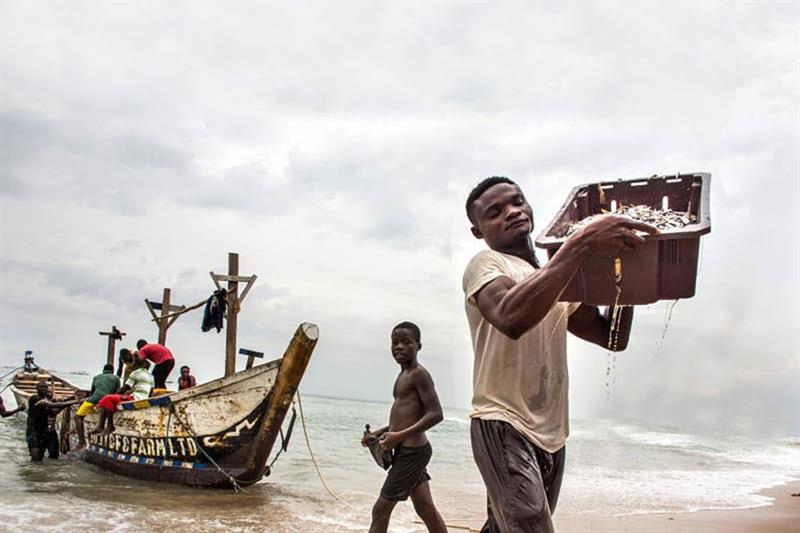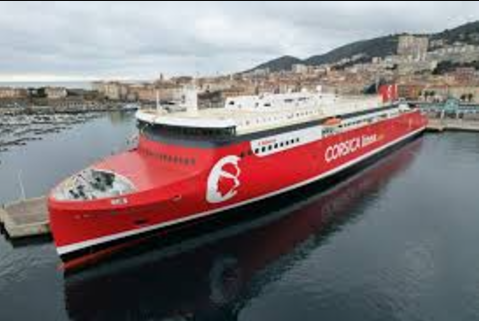Promoting Africa’s ocean economy was a key topic at the United Nations Ocean Conference held in France from June 9 to 13. The event emphasized the opportunities offered by ocean resources and strengthening the resilience of coastal communities.
With more than 30,000 kilometers of coastline and 38 coastal states, Africa positions itself as a maritime power. Its future is intrinsically linked to its waters. Unfortunately, this blue wealth is too often undervalued and overexploited. With these strong words, UN Secretary-General António Guterres opened the summit “Africa for the Ocean.” Held on June 9 alongside the 2025 United Nations Ocean Conference (UNOC-3) in Nice, the event aimed to boost opportunities from marine resources, promote Africa’s blue economy, and encourage resilience among coastal communities.
A central theme was the necessity to exploit ocean resources sustainably.
The conference provided a unique opportunity to amplify visibility and collaborative efforts in favor of the ocean—an apparently inexhaustible source of livelihood, potential, and wonder. It also marked a moment of global unity, celebrating the ocean as the greatest wonder of our planet.
Africa as a Key Player
During discussions, Africa asserted itself as a key player in ocean action. The continent is bordered by several bodies of water: the Mediterranean Sea to the north, the Suez Canal and Red Sea to the northeast, the Indian Ocean to the east and southeast, and the Atlantic Ocean to the west. These waters harbor spectacular biodiversity, with numerous species thriving in the warm and cold currents bathing the continent, making Africa a true maritime power.
About 150 million people live on Africa’s coasts. The ocean economy enables millions to benefit from this natural wealth. Major sectors include maritime fishing, coastal tourism, and sustainable exploitation of marine species. Every element of the ocean—from biodiversity to its chemical composition—supports humanity in many ways: producing oxygen and food, providing medicines, sequestering carbon, and protecting coasts.
The African Union (AU) projects that this economy will be worth at least $400 billion by 2030 and create over 55 million jobs. In this vision, the AU has established a Blue Economy Division to optimize existing sectors and develop new ones. The African Development Bank estimates that fishing generates $24 billion annually and employs 12 million people.
The Nairobi Convention, in force since 1996, is part of the United Nations Environment Programme’s Regional Seas Programme. This regional marine ecosystem protection framework involves ten coastal states: South Africa, Comoros, France, Kenya, Madagascar, Mauritius, Mozambique, Seychelles, Somalia, and Tanzania. According to estimates, coastal and marine tourism in South Africa alone should generate $1.4 billion and create 116,000 jobs by 2026.
Redefining Africa’s Maritime Role
“The blue economy is not an ecological luxury, but a strategic necessity,” stressed King Mohammed VI of Morocco during the summit. He presented Morocco’s vision calling for a strategic overhaul of Africa’s maritime role, based on three pillars: blue growth, strengthening South-South cooperation and regional integration around ocean spaces, and maritime efficiency through Atlantic synergies.
“If Africa’s ocean economy continues to grow, it could help lift millions out of poverty by producing a wide range of marine products and services. It opens the ocean to entrepreneurs, innovators, investors, as well as small and medium-sized enterprises in Africa and beyond,” said Francis Vorhies, co-director of the African Wildlife Economy Institute. He added, “Through good governance, inclusive access, accountability, and transparency, a modern ocean economy can preserve ocean wonders for future generations.”
Challenges Ahead
The conference addressed the many challenges facing the oceans. It concluded on the need for global policies and integrated management to ensure healthy, productive ecosystems while guaranteeing sustainable long-term use of marine and coastal resources.
Among the issues are worsening climate change impacts, plastic pollution, illegal, unreported and unregulated industrial fishing, devastating overtourism, and the spread of invasive species.
“Maritime insecurity threatens peace. Pollution poisons coasts and ecosystems. And the climate crisis—though Africa is not responsible—ravages its shores. We must end historical injustices. These injustices are also reflected in the ocean: investments have often bypassed Africa, even while its marine resources were exploited by others,” declared Guterres.
In response, conference participants stressed the urgent need for renewed momentum and concrete funding to meet commitments. African oceans must become true corridors of integration, linking coastal and landlocked countries for shared growth. This requires strategic investments in maritime and port infrastructure: interconnected, climate-resilient ports capable of meeting the demands of expanding trade.
“From Dakar to Djibouti, from Cape Town to Casablanca, Africa proves that prosperity and preservation can go hand in hand. The world needs Africa to meet ocean challenges. And the ocean needs an Africa that charts its course and sails resolutely toward the future,” concluded Guterres.
Key figures on Africa’s ocean economy:
- 30,000 kilometers: Length of African coastline
- 38: Number of African coastal states
- 150 million: Number of people living on Africa’s coasts
- $400 billion: Projected contribution of Africa’s blue economy by 2030
- 55 million: Number of jobs the blue economy could generate by 2030
- $24 billion: Annual revenue generated by Africa’s fishing sector
- 12 million: Number of people employed in Africa’s fishing sector
- 4%: Share of the ocean economy in the global economy
Source: french.ahram.



